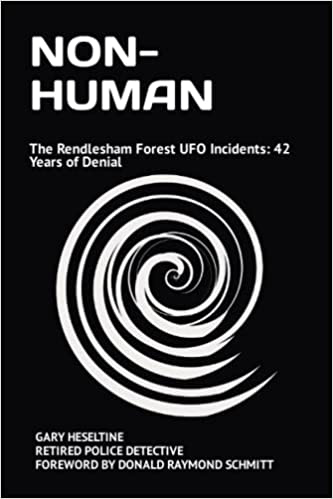Humanity Might Be Alone in the Galaxy According to New Research
Alien Life & UFO/UAPs
Sunday 2nd, June 2024
4 minute read.
In a recent study examining the Fermi Paradox using the Drake Equation, researchers have presented a sobering possibility, perhaps humanity is alone in the galaxy.
The Fermi Paradox, first posed by physicist Enrico Fermi in 1950, addresses the apparent contradiction between the high probability of extraterrestrial life and the lack of evidence for, or contact with, such civilisations. Given the vast number of exoplanets discovered in recent years, it seems improbable that we are the only intelligent beings searching for others. Yet, despite our efforts, no alien civilisation has made contact.
A range of explanations has been proposed, from the benign, such as insufficient time for contact, to the terrifying, like the self destruction of civilisations before they can reach out. The Drake Equation, formulated to quantify the number of intelligent civilisations, incorporates factors such as the number of habitable planets, the likelihood of life developing, and the probability of that life becoming technologically advanced. Estimates from the Drake Equation have varied widely, from 30 to 100,000 potential civilisations. Frank Drake himself estimated between 1,000 and 100 million in our galaxy alone.
As our understanding of exoplanets and the origins of life on Earth improves, we can refine these estimates. The new study attempts to do just that, pointing out the inconsistency between high estimates of potential civilisations and the lack of observed active, communicative civilisations (ACCs).
The researchers focused on Earth's unique geological history, particularly the role of plate tectonics in the development of complex life. They argue that plate tectonics may have been crucial for the acceleration of biological evolution by delivering essential elements like phosphorus to the surface. "Tectonic processes exposing fresh rocks on the surface are crucial for enhancing delivery of [phosphorus] and other inorganic nutrients, because shielding of fresh rock surfaces by soil reduces nutrient fluxes due to chemical weathering", the team explains in their paper.
Evidence from Earth's history supports this idea, as the emergence of plate tectonics created a more life hospitable environment. "The addition of [phosphorus], [iron] and other nutrients from erosion and weathering of Ediacaran collisional mountains broke the Mesoproterozoic nutrient drought, stimulating life and evolution", the researchers note.
Plate tectonics may have also increased oxygen levels in the atmosphere and oceans, moderated the climate through subduction of carbon, and created diverse landscapes that stimulated biological diversity. The study suggests that both continents and oceans are required for the evolution of intelligent life, as early life forms likely began in water, while advanced life forms capable of developing technology evolved on land.
The team calculated the necessary amount of water for exoplanets to have both surface water and continents and applied these criteria to the Drake Equation. They estimated the number of planets with suitable conditions for ACCs to be between less than 0.006 and less than 100,000. When considering additional potential "great filters" like extinction events or societal collapse, the estimate narrows further to between less than 0.0004 and less than 20,000. The researchers advise focusing on the lower end of this range, given the likelihood of catastrophic events limiting the longevity of communicative civilisations.
"It may be that primitive life is quite common in the galaxy", the team concluded. "However, due to the extreme rareness of long-term (several hundred million years) coexistence of continents, oceans and plate tectonics on planets with life, ACCs may be very rare".
Uncertainties within the Drake Equation remain, and new discoveries could alter these estimates. As detection methods improve, we may find more Earth-like planets or other environments capable of supporting life. The probability of initial life emerging might also be higher than currently thought, increasing the chances of life overcoming the great filters somewhere in the cosmos.
While this research highlights the rarity of intelligent life, the quest to discover whether we are truly alone continues. With advancements in technology and exploration, the possibility remains that we will one day find other intelligent beings in the universe.
The Fermi Paradox, first posed by physicist Enrico Fermi in 1950, addresses the apparent contradiction between the high probability of extraterrestrial life and the lack of evidence for, or contact with, such civilisations. Given the vast number of exoplanets discovered in recent years, it seems improbable that we are the only intelligent beings searching for others. Yet, despite our efforts, no alien civilisation has made contact.
A range of explanations has been proposed, from the benign, such as insufficient time for contact, to the terrifying, like the self destruction of civilisations before they can reach out. The Drake Equation, formulated to quantify the number of intelligent civilisations, incorporates factors such as the number of habitable planets, the likelihood of life developing, and the probability of that life becoming technologically advanced. Estimates from the Drake Equation have varied widely, from 30 to 100,000 potential civilisations. Frank Drake himself estimated between 1,000 and 100 million in our galaxy alone.
As our understanding of exoplanets and the origins of life on Earth improves, we can refine these estimates. The new study attempts to do just that, pointing out the inconsistency between high estimates of potential civilisations and the lack of observed active, communicative civilisations (ACCs).
The researchers focused on Earth's unique geological history, particularly the role of plate tectonics in the development of complex life. They argue that plate tectonics may have been crucial for the acceleration of biological evolution by delivering essential elements like phosphorus to the surface. "Tectonic processes exposing fresh rocks on the surface are crucial for enhancing delivery of [phosphorus] and other inorganic nutrients, because shielding of fresh rock surfaces by soil reduces nutrient fluxes due to chemical weathering", the team explains in their paper.
Evidence from Earth's history supports this idea, as the emergence of plate tectonics created a more life hospitable environment. "The addition of [phosphorus], [iron] and other nutrients from erosion and weathering of Ediacaran collisional mountains broke the Mesoproterozoic nutrient drought, stimulating life and evolution", the researchers note.
Plate tectonics may have also increased oxygen levels in the atmosphere and oceans, moderated the climate through subduction of carbon, and created diverse landscapes that stimulated biological diversity. The study suggests that both continents and oceans are required for the evolution of intelligent life, as early life forms likely began in water, while advanced life forms capable of developing technology evolved on land.
The team calculated the necessary amount of water for exoplanets to have both surface water and continents and applied these criteria to the Drake Equation. They estimated the number of planets with suitable conditions for ACCs to be between less than 0.006 and less than 100,000. When considering additional potential "great filters" like extinction events or societal collapse, the estimate narrows further to between less than 0.0004 and less than 20,000. The researchers advise focusing on the lower end of this range, given the likelihood of catastrophic events limiting the longevity of communicative civilisations.
"It may be that primitive life is quite common in the galaxy", the team concluded. "However, due to the extreme rareness of long-term (several hundred million years) coexistence of continents, oceans and plate tectonics on planets with life, ACCs may be very rare".
Uncertainties within the Drake Equation remain, and new discoveries could alter these estimates. As detection methods improve, we may find more Earth-like planets or other environments capable of supporting life. The probability of initial life emerging might also be higher than currently thought, increasing the chances of life overcoming the great filters somewhere in the cosmos.
While this research highlights the rarity of intelligent life, the quest to discover whether we are truly alone continues. With advancements in technology and exploration, the possibility remains that we will one day find other intelligent beings in the universe.



